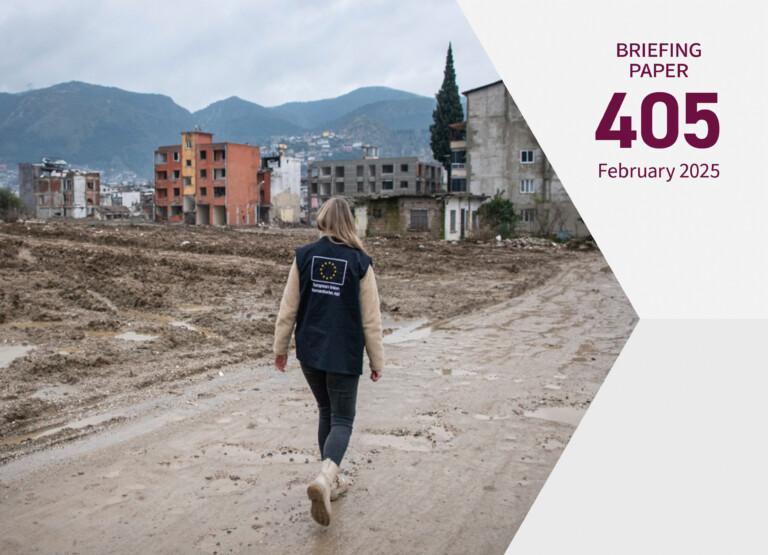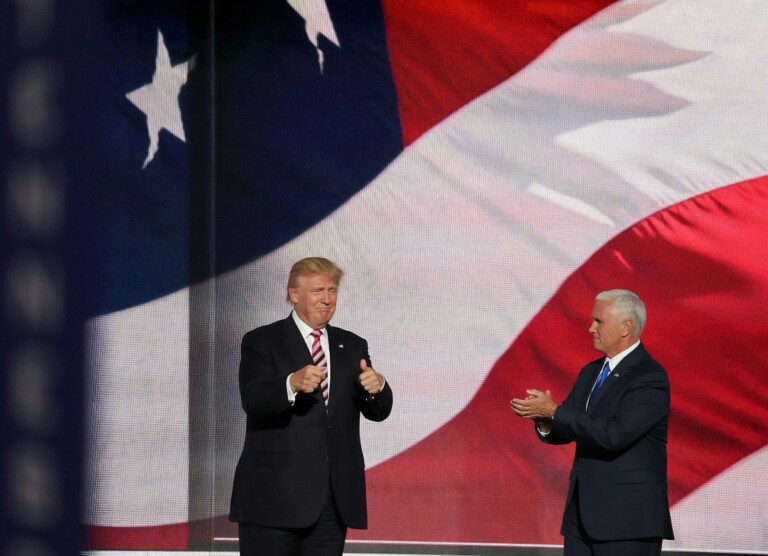
Venäjällä on arktisella alueella huomattavia taloudellisia, turvallisuuspoliittisia ja hallinnollisia intressejä. Venäjä on Arktiksella niin keskeinen toimija, että ilman Venäjän osallistumista kansainvälinen arktinen yhteistyö on tuomittu epäonnistumaan.
Venäjällä on ollut suuria toiveita arktisen alueen öljy- ja kaasuvarojen sekä laivareittien hyödyntämisestä, mutta niiden tielle on tullut monimutkaisia haasteita. Venäjän yleinen uudistuskyvyttömyys johtanee siihen, että arktisten alueiden kehitys tulee jatkumaan, mutta odotettua hitaammin sekä epälineaarisesti.
Venäjän huomio arktisilla alueilla on siirtynyt aiempaa enemmän turvallisuuskysymyksiin, ja maa on lisännyt sotilaallista suorituskykyään pohjoisessa. Vaikka turhaan pelonlietsontaan ei ole aihetta, epävarmuus Venäjän aikeista on osoitus heikentyneestä turvallisuustilanteesta.
Kiristyneestä kansainvälisestä tilanteesta huolimatta eri osapuolet ovat pyrkineet pitämään kiinni alueellisesta yhteistyöstä arktisella alueella. Arktinen yhteistyö on näissä olosuhteissa osoittanut joustavuutensa.
Venäjän taloudelliset ongelmat ja Kremlin poikkeukselliset toimet sekä sisä- että ulkopolitiikassaan ovat joka tapauksessa herättäneet huolta niin Venäjän arktisen politiikan suunnasta kuin koko arktisen yhteistyön tulevaisuudesta.
Russia has major economic, security and governance interests in the Arctic region. It also has a long history in the region, which constitutes an important element of Russian identity. Today, Russia is the most determined Arctic player, with large-scale economic and military development plans and activities in the region.
The growing importance of the Arctic is highlighted in Russia’s key strategy documents, which envision the region as a future strategic resource base and a site of civilian and military development.1 To fulfil its Arctic ambitions, Russia needs international cooperation to create a stable operating environment and to gain access to finance and technology. Consequently, for the past decade, Russia has been a constructive and cooperative player in Arctic governance structures.
However, as expectations concerning the economic potential of the Arctic have been somewhat confounded by the gloomy economic situation and international tensions, Russia’s Arctic ambitions are becoming increasingly difficult to realise. This coincides ominously with a more security-oriented reading of the region in Russia. These dynamics raise concerns about the future of Russia’s Arctic policy.
This Briefing Paper maps out the current dynamics of Russian Arctic policy with the focus on the economy, security and governance. It starts by analysing the domestic developments that influence Russia’s Arctic policies and then turns to Moscow’s economic ambitions in the region and the key challenges that hinder their realisation. The paper continues by illustrating the ongoing security dynamics that have increased uncertainty in the Arctic. Finally, the paper explores Russia’s role in international Arctic governance.
Domestic dynamics: Growing re-centralisation
Political power in Russia at present has been strongly re-centralised to the Kremlin. Similarly to the Russian political system, which is based on unofficial and reciprocal networks of political and economic power instead of formal political institutions, Russian Arctic policy is also based on a few key individuals with specific points of interest.2 Success in getting a certain policy implemented and one’s concerns heard depends to a large extent on personal connections to the inner circle of President Vladimir Putin’s regime.3
The re-centralisation of power to certain loyal figures is illustrated in the Arctic by the establishment of the Arctic Commission, headed by Deputy Prime Minister Dmitry Rogozin. The Commission’s tasks in the formulation and coordination of Russia’s Arctic policy are comprehensive, covering the relevant aspects from national security to socio-economic development.
The Commission coordinates the Arctic work of four key ministries, as well as the work of the highly influential National Security Council. The Commission includes representatives from Russia’s key Arctic stakeholders, such as the oil and gas industry, the Ministry of Defence, the Federal Security Service (FSB), the Presidential Administration and regional governors. The establishment of the Commission also meant the elimination of the Ministry of Regional Development.
Although a new bureaucratic structure enables the streamlining of policy formulation for this vast region with its fragmented and multi-layered governance mechanisms, it also implies a de facto power shift from the regional level to the tight control and oversight of the Kremlin and Putin’s siloviki inner circle.4
Another example of the re-centralisation of Russia’s Arctic policy is the revival of the Russian Geographical Society. The society advances various Arctic projects approved by the authorities, brings together a variety of Arctic stakeholders in Russia and increasingly acts as an unofficial forum for Arctic policy formulation. Defence Minister Sergey Shoigu is the president of the society, while President Putin chairs the society’s Board of Trustees. The board includes, among others, Russia’s most powerful oligarchs, state officials as well as some international partners.5
Energy: Reduced expectations
Russia has significant economic interests in the Arctic: one-fifth of the country’s GDP is produced north of the Arctic Circle, and 95 per cent of Russia’s natural gas and 75 per cent of its oil reserves are located in Arctic and sub-Arctic regions.6
Consequently, the Arctic’s role in Russia’s economic equation is substantial: domestic social programmes, infrastructure investments and military modernisation are all critically dependent on revenues from natural resource exports, as too is the rent-seeking system that extends its reach to all economic activity in Russia. From a foreign policy perspective, hydrocarbons provide important leverage for Russia’s external influence, especially in Europe.7
The initially slow Arctic development in Russia started to intensify in the 2000s due to a rise in energy prices and in global demand for energy as well as optimism on recoverable reserves. Russia’s increasing economic focus towards the North (and East) also reflects the fact that its mature hydrocarbon fields in Western Siberia are slowly drying up, creating the imperative to push towards new reserves in the Arctic. Consequently, Russia aims to transform its Arctic region into a strategically vital resource base by 2020.8
Russia’s recent Arctic hydrocarbon activities have primarily been onshore projects in key locations such as the Yamal Peninsula, as well as in nascent offshore projects on Russia’s Arctic continental shelf. The complex offshore projects have typically been joint ventures between Russian and international energy corporations: Russia has relied on foreign – primarily Western – investment and technological know-how. By submitting a claim to extend the outer limit of its Arctic Ocean continental shelf, Russia has also set its sights on resource bases outside of its current territorial borders.
It has turned out to be extremely difficult to realise the Arctic hydrocarbon potential. Firstly, the selling price of hydrocarbons must be high for Arctic extraction to be profitable. This effectively makes further development on the Russian continental shelf economically unfeasible in the current energy market conditions. In consequence, exploratory drilling activities have been postponed.9
Arctic off-shore projects are very expensive and require significant and risky up-front investments.10 The time between the initial discovery and the actual production phase might span decades, subjecting the projects to the uncertainties of global politics and the economy. Consequently, fully committing to long-term development projects remains risky even for Russia’s state-owned corporations, let alone their international partners. With the current economic downturn, Russia’s state-owned energy companies are generally disinclined to advance the high-risk projects. There is also a growing possibility that assets in the Arctic could become stranded in the long run due to increases in renewable energy production and improvements in energy efficiency, or due to the increasing competitiveness of shale and deep-water development elsewhere on the globe.
While Arctic energy projects are currently economically unfeasible, there is nevertheless the possibility that they might still be utilised for rent-seeking: launching major projects merely to pocket money in the process without even aiming to complete the project is a possible option considering the logic of the Russian system.
Western sanctions have affected Russia’s Arctic development considerably. The financial sanctions have denied Russian energy companies access to Western capital markets, which has made Arctic megaprojects very difficult to finance. Sanctions that prohibit the export of Western technology and services for Russian offshore oil development in the Arctic have halted co-operation, without which activities become practically impossible.
Domestic factors also play a role. The development of offshore oil and gas resources in the Russian Arctic is strongly centralised, which has reduced competition and efficiency. Although there is an ongoing debate about granting private companies access to shelf development, offshore licences are still designated exclusively to companies with a state majority and at least five years’ experience of offshore activity – namely to Gazprom and Rosneft.
Given the current extremely difficult operating environment, it seems highly likely that the vast majority of offshore hydrocarbon resources in the Russian Arctic will remain untapped for quite some time, and Russia’s activities will focus on onshore projects.
Transport: Sea routes remain silent
Russia’s other significant economic interest in the Arctic is maritime transport. As the Arctic Ocean ice cover is gradually melting away due to climate change, the Northern Sea Route (NSR) along Russia’s Arctic coastline is expected to become more easily accessible for transport.
The NSR is seen to offer a viable route for transporting natural resources from the Russian Arctic to global markets, and efforts to develop the NSR have grown in concert with aspirations to extract Arctic energy resources. Russia also envisions the NSR as a new global maritime highway as it could offer substantial savings in time and money between Asian and European markets. The collection of potential transit fees along the NSR is seen as growing income for the state.
Russian forecasts about the future importance of the NSR have typically been very optimistic. In terms of cargo, Russia’s Ministry of Transport has estimated that volumes could reach as high as 64 million tons in 2020 and 85 million tons in 2030. These estimates imply an astronomical leap from 1.35 million tons in 2013, 0.66 million tons in 2014 and 0.04 million tons in 2015.11
To realise its vision, Russia has updated the regulatory framework of the NSR, and established the Northern Sea Route Administration to improve the operational management of the route. Russia has also begun to improve the NSR’s deficient infrastructure, including the ageing nuclear-powered ice-breaker fleet, search and rescue centres, and communications systems. However, the development of adequate infrastructure will continue to face multiple challenges and delays stemming from growing budgetary concerns, Western sanctions, and insufficient domestic know-how.
Year-round transport along the route is not economically feasible as the Arctic winter ice is not expected to disappear anytime soon. The summer months remain challenging due to yearly ice cover variations. The challenging and unpredictable environment means that the NSR may not be suitable for the precise logistics upon which global trade relies.
The NSR also lacks critical en route markets, whereas the Southern maritime corridor passes through the most populated and fastest growing markets of the world. Consequently, Arctic routes are not suitable for container traffic that relies on a high load percentage while serving multiple ports. The trend of increasingly bigger container ships also makes the NSR a less feasible option due to its shallow waters.
The challenging operating conditions and global dynamics do not augur well for the NSR as a significant global maritime route. In the long run, the biggest potential for the NSR is the transportation of bulk cargo (e.g. gas, oil, minerals) as opposed to container cargo. This depends on the feasibility of Arctic energy projects and the global demand for resources.
Security: Growing uncertainty
While threat assessments in the Russian public discourse are sometimes out of touch with reality – such as the US seeking to bring down Russia in order to access its natural resources12 – Russia has significant and legitimate security interests in the increasingly active Arctic. The country seeks to project its sovereign authority in its Arctic regions through improved border control under the FSB’s management to provide safety and security in the NSR, and to maintain credible forces to secure critical assets in the region.
Russia also seeks to maintain, develop and project a credible military force in the region to be able to react to various global and regional scenarios, as well as to deter the expansion of a foreign military presence into the (Russian) Arctic. Since 2007–2008, Russia has re-established long-range aviation patrols and increased the presence and activity of the Northern Fleet in the region, as well as started ambitious military modernisation that also affects assets in the Arctic, including strategic submarines, land forces and air defence systems.
More recently, Russia has announced that it will re-open various Soviet-era airbases throughout the Russian Arctic and establish new military bases on several key Arctic Ocean islands. Russia’s new strategic military command brings together the Northern Fleet and other units in the Arctic under a unified structure, and Moscow has conducted massive, unannounced snap exercises to test its operational readiness. In the Military Doctrine of 2014, the Arctic was highlighted as one of the three key regions for Russian military development, in addition to Crimea and Kaliningrad.
One should note that while Russia develops anti-access and area denial (A2/AD) capabilities in the region, Russian military developments in the Arctic are not Arctic-specific as such, but linked with Moscow’s more general geostrategic ambitions and its great power self-perception. This has gained weight in the current strained international situation, where Russia’s geostrategic world view is based on zero-sum geopolitics and where Russia sees itself as a besieged fortress surrounded by unfriendly forces.
In this equation, the Arctic Ocean is of the utmost importance for Moscow’s power projection since it provides Russia with its only uncontested access to the Atlantic Ocean. Consequently, Russia has strategic military forces on the Kola Peninsula. A total of 81.5 per cent of Russian strategic maritime nuclear capabilities are concentrated in the Northern Fleet and its ballistic missile submarines.13
While the occupation of Crimea indicates that Russia has chosen the path of a revisionist power in Europe, Russia’s security policy signals in the Arctic have been more mixed. Russia utilises both hard and soft power tools in its Arctic policy and Russian Arctic discourse has both belligerent and cooperative elements, often depending on who is expressing them and whether the discourse is directed at domestic or international audiences.
During the Ukraine conflict, Russia’s public endorsements of international law and co-operation vis-à-vis the Arctic have co-existed with bolder rhetoric about the region’s territorial value for Russia.14 Even if bolder nationalistic statements are meant for domestic consumption, they are nevertheless public speech acts that reinforce the uncertainty about Russia’s territorial intentions.
Western perceptions of Russia and its intentions have taken a turn for the worse as a result of the conflict in Ukraine. There is widespread distrust towards Russia, particularly given the perceived discrepancy between what Russia has said and what it has done. Russia’s dismissal of various international norms and commitments has not helped to dispel this growing uncertainty.
Before the Ukraine conflict, the increase in Russian military presence in the Arctic was widely interpreted as legitimate behaviour. Growing uncertainty about Russia’s intentions has now opened the door for alternative interpretations whereby Russia’s Arctic military modernisation is increasingly interpreted with more caution and concern.
International governance: Cooperation in tumultuous times
Russia has mostly been a reliable and constructive actor in Arctic governance: it has a pragmatic and strategic need for international cooperation in the Arctic based on its economic interests. While Moscow usually prefers to operate bilaterally, in Arctic governance it has endorsed multilateral cooperation. In particular, it has endorsed the Arctic Council as the legitimate institutional framework.
Russia also has strategic reasons to endorse and follow the United Nations Convention on the Law of the Sea (UNCLOS). The treaty legitimises Russia’s access to current energy reserves and provides a cost-effective way to extend continental shelves. As the hydrocarbon extraction in Arctic waters has relied on international public-private co-operation which, in turn, has benefited from a low-risk investment environment, any interstate dispute over continental shelf extensions is unlikely to facilitate commercial activities in the Arctic offshore.
Although Russia has every need to maintain the Arctic as a zone of cooperation and dialogue, its consistent commitment to international law has been anything but clear under the current regime. The occupation of Crimea and the conflict in Ukraine highlight the fact that, if need be, Russia is prepared to dismiss many of the international norms and commitments it has previously endorsed. It has become more uncertain whether or not – or under what conditions – one should expect Russia to remain consistently committed to its legal and diplomatic obligations also in the Arctic.
The strained relations between Russia and the West have already affected the established practices of security co-operation in the Arctic. This is noteworthy as military cooperation between Russia and NATO countries has been a distinctive and exceptional Arctic feature, and particularly important in building mutual trust in the region. The crisis has also affected the high political level. Russia sees the EU as a geopolitical player, and given the current international situation, Russia has blocked the finalisation of the Union’s observer status in the Arctic Council.15
Conclusions
The sanctions regime, intensified perceptions of external threats, isolation and the growing influence of the security apparatus in the Russian political system are likely to increase demands for more state control and self-sufficiency, and thus potentially increase distrust towards foreign and particularly Western partners in the Arctic. This is problematic as Arctic projects require Western expertise and finance. However, the current economic reality also calls for increased privatisation as indicated by the plan to gain revenue by selling a part of Rosneft to non-state entities.
High hopes concerning hydrocarbon and maritime prospects in the Russian Arctic have turned into more realistic expectations due to multiple complex challenges. The general sense of disillusionment does not indicate that Russia is likely to give up on Arctic economic development altogether, however. Considering the optimistic Arctic visions and the general unwillingness and incapability to reform in Russia, Arctic development will most likely continue, but the pace will be slower than expected and non-linear in nature.
In Western eyes, Russia’s intentions in the Arctic are seen as increasingly harmful. Growing military capabilities, especially in a time of uncertainty about Russia’s plans, may reintroduce the classic security dilemma in the Arctic. This would be detrimental to the spirit of co-operation in the region as well as bad for business. Even though one shouldn’t be too alarmist about the military developments in the region, general uncertainty has grown and the security situation has worsened. This is something that small Arctic nations, like Finland, have clearly started to sense.16
Nevertheless, Arctic cooperation has shown continuing resilience as Arctic actors have actively tried to maintain regional cooperation in a difficult international environment. There are still encouraging examples of Arctic cooperation despite conflicts between Russia and the West in other parts of the world. But, in the end, the Arctic as a zone of cooperation is a political construction that can always be dismantled if an involved party wishes to do so.
If the Arctic economic potential does not materialise while Russia’s growing political isolation continues, the lack of economic prospects could have serious implications for Russia’s current cooperative stance. As Russian military capabilities remain uncontested in the Arctic, the region could even be constructed as a hostile theatre for domestic purposes to help bolster the regime’s popularity in a situation where the Russian domestic political and economic system is facing severe problems.
In fact, the general Arctic discourse and Russia’s actions in the region have already shifted towards hard security issues. The re-centralisation of power to the siloviki in combination with the Russian regime’s current crisis mode may indicate increasingly stronger securitisation of Arctic matters. If these adverse dynamics became even more widely entrenched, it would severely damage Russia’s cooperative Arctic brand and put the cooperative political spirit in the Arctic into reverse.
Endnotes
1 See e.g. 2013 Russian Arctic Strategy: ‘Strategiya razvitiya Arkticheskoy zony Rossiyskoy Federatsii i obespecheniya natsional’noy besopasnosti na period do 2020 goda’. Available at: https://minec.gov-murman.ru/activities/strat_plan/arkticzone/.
2 For a recent analysis of the Russian political system, see Laine, Veera, Toivo Martikainen, Katri Pynnöniemi & Sinikukka Saari (2015): Zugzwang in slow motion? The implications of Russia’s system-level crisis. FIIA Analysis 6, The Finnish Institute of International Affairs: https://fiia.fi/fi/publication/554/zugzwang_in_slow_motion/.
3 Baev, Pavel K. (2015: 53) ‘Russia’s Arctic Aspirations’, in Jokela, Juha (ed) Arctic Security Matters, ISS Report 24, EU Institute for Security Studies.
4 Conley, Heather A. and Caroline Rohloff (2015): The New Ice Curtain: Russia’s Strategic Reach to the Arctic, Center for Strategic & International Studies, pp. 7–8.
5 Laruelle, Marlele (2014): Russia’s Arctic Strategies and the Future of the Far North. M.E. Sharpe, New York, pp. 11–12.
6 Laruelle (2014), p. xxi.
7 Martikainen, Toivo & Antto Vihma (2016): Dividing the EU with Energy? Unpacking Russia’s Energy Geoeconomics. FIIA Briefing Paper 191, The Finnish Institute of International Affairs: https://fiia.fi/en/publication/571/dividing_the_eu_with_energy/.
8 2008 Russian Arctic Strategy: ’Osnovy gosudarstvennoy politiki Rossiyskoy Federatsii v Arktike na period do 2020 goda i dal’neyshuyu perspektivu’. RG.ru, 27 Mar 2009: http://www.rg.ru/2009/03/30/arktika-osnovy-dok.html.
9 For example, Rosneft’s projects in the Kara Sea have currently been postponed until the 2020s in anticipation of higher oil prices and the removal of the sanctions regime.
10 The recent exploratory drilling of a single well by Exxon-Mobil and Rosneft in the Kara Sea was estimated to have cost around $600–700 million.
11 Zysk, Katarzyna (2015): ‘Russia Turns North, Again: Interests, Policies, and the Search for Coherence’, in Jensen, Leif Christian and Geir Hønneland (eds.), Handbook of the Politics of the Arctic, Edward Elgar Publishing, Cheltenham, UK, p. 443; Northern Sea Route Information Office, http://www.arctic-lio.com/docs/nsr/transits/Transits_2014.pdf.
12 See e.g. ‘U.S. Wants Russia Collapse to Gain Its Resources – Security Council Head’. TheMoscowTimes.com, 26 Jan 2016: http://www.themoscowtimes.com/news/article/us-wants-russia-collapse-to-gain-its-resources---security-council-head/556927.html.
13 Conley & Rohloff 2015, p. 12.
14 See e.g. Barents Observer (2015) ‘Expansionist Rogozin looks to Arctic’, http://barentsobserver.com/en/arctic/2015/04/expansionist-rogozin-looks-arctic-21-04.
15 The Arctic Council has also imposed some boycotts following Russia’s actions in Ukraine.
16 ‘Speech by Foreign Minister Soini at the Center for Strategic and International Studies’. Formin.Finland.fi, Feb 1 2016: http://formin.finland.fi/public/default.aspx?contentid=341241&contentlan=2&culture=en-US.










